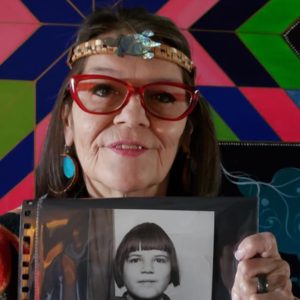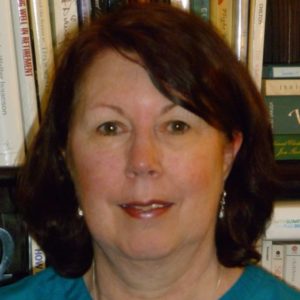
Online
Full-Time
37 weeks
(Including breaks)
Part-Time
100 weeks
(Including breaks)
$40 (Domestic)
$140 (International)
$6,730 (Domestic)
$8,412 (International)
+ textbook fee
~$1,500
Start Date
SPRING SEMESTER
Full-Time
Program Duration: To be announced
All synchronous sessions are recorded and are available for asynchronous viewing for seven days after the synchronous session.
Apply NowSPRING SEMESTER
Part-Time
Program Duration: To be announced
Download Brochure
The Developmental Services Worker (DSW) Diploma program focuses on the skills necessary to assist clients with their physical, vocational, recreational, social, emotional and daily skill development. It is perfectly suited for anyone who wants to become a Personal Support Worker, Home Support Worker or Developmental Service Worker.
Developmental Services Worker/Personal Support Worker students will learn how to provide personal support to clients enabling them to achieve the highest degree of independence and quality of life possible. Typically the Community Support Worker or Personal Support Worker will offer a variety of services depending upon the needs of the specific case.
Apart from learning about behaviour management and counselling, you will also receive training in crisis intervention, learning and support strategies, creating community inclusivity, health and wellness, communication skills and more. As a Developmental Services Worker/Personal Support Worker, you may also be called upon to help support individuals with developmental disabilities, social and personal problems, and ensure their overall well-being.
Upon completion of this program, the successful student will have reliably demonstrated the ability to:
Graduates of the Developmental Services Worker program will be able to obtain a fulfilling position within the following fields:
This course is intended to provide students with the fundamental skills to be successful in an online learning environment. Students will be introduced to the Microsoft Office suite applications most commonly used in document preparation and report writing. Students will also learn how to effectively implement Internet web searches. Students will learn the applications of their learning management system (LMS), in order to upload assignments and access content throughout their time in the program.
Upon completion of this course the successful student will have reliably demonstrated the ability to:
This course will discuss developmental disabilities such as Autism Spectrum Disorder (ASD), Fetal Alcohol Syndrome Disorder (FASD), Down Syndrome (or Trisomy 21), Prader-Willi Syndrome (PWS), and Fragile-X Syndrome (FXS). The focus of this course is evidence-based research on these disorders and commonly used interventions that have demonstrated enhancements in independence and quality of life. This course will provide an overview of the care and considerations needed when working with individuals with disabilities. This course is an overview of the historical outlook on disability as well the recent research surrounding disabilities. Students will learn the importance of confidentiality and protecting vulnerable populations. This course will also cover the attitudes, perceptions and stigmatizing towards individuals with disabilities.
Upon completion of this course, the successful student will have reliably demonstrated the ability to:
In this course, students will look at the roles and responsibilities of a Developmental Services Worker. Students will gain an understanding of, and exposure to, a variety of potential work environments. Students will also learn their professional code of conduct and ethics as a Developmental Services Worker. This course introduces students to the core values of the industry as well as a Developmental Service Worker’s role in advocacy and empowerment of individuals with disabilities. Students will also explore confidentiality and professional boundaries to set them up for success in their future roles.
Upon completion of this course, the successful student will have reliably demonstrated the ability to:
Students will gain an understanding of theorists and their research on life span development. Exploration of development will begin with infancy and early childhood and end with late adulthood and the end of life. Students will also have the opportunity to make decisions in raising a child from infancy to adulthood through a virtual reality assignment. Additionally, this course will touch on how developmental disabilities alter development through the life span. Students will gain an appreciation for how developmental disabilities contribute to everyday life from infancy to late adulthood.
Upon completion of this course, the successful student will have reliably demonstrated the ability to:
This course outlines the fundamentals in psychology and abnormal psychology. Students will learn the factual foundation, techniques, vocabulary of psychology and human behaviour. Application of psychology in areas of learning, intelligence, motivation, emotion, personality, behaviour disorders, mental health and therapy will be discussed. By understanding abnormal psychology, students are better equipped to make connections and build relationships with the individuals they are supporting within the community.
Upon completion of this course the successful student will have reliably demonstrated the ability to:
In this course, students will receive an overview of mental health service delivery options within BC and how to determine service delivery options within your specific area. Students will also explore Canada’s Mental Health Act. Students will be introduced to the DSM-V, etiology, symptoms and treatments of various major mental illnesses and disorders. This course will also touch on the role of health and wellness in the lives of community members, and how to help promote healthy habits in the individuals you are supporting. Due to the fact that the Developmental Services Worker (DSW) is supporting and providing care to individuals with complex medical needs, it is important to have a basic understanding of bodily functions. Students will also get a glimpse into the mind-body connection.
Upon completion of this course the successful student will have reliably demonstrated the ability to:
This course focuses on the industry best practice of behaviour management which is Applied Behaviour Analysis (ABA) and under the umbrella of ABA is Positive Behaviour Support which students will also become familiar with. Using the ABC model (modifying antecedents and consequences), students will understand how to manage behaviour using reinforcement. There are many ethical considerations to keep in mind regarding behaviour management, so students will get a deeper look into providing behaviour support that is client-centered and supports an enhanced quality of life. Practical applications of theory and their effects on behaviours will be discussed through this course.
Upon completion of this course, the successful student will have reliably demonstrated the ability to:
There is an expanse of technologies available to help adapt the built environment to support the needs of individuals with various disabilities. This course is designed to show how assistive technology can be used in community settings to enhance the teaching and learning of people with disabilities. It addresses the challenge of how we can effectively use assistive technology in all kinds of settings to enhance skill-building. This course will also discuss alternate communication technologies and give students the foundational skills to use these technologies, in order to communicate effectively with the individuals they are supporting.
Upon completion of this course, the successful student will have reliably demonstrated the ability to:
A dual diagnosis is defined by a combination of two diagnoses, in this course the focus will be the interaction between a developmental disability diagnosis and a mental illness diagnosis. Students will get a better look at the history of dual diagnosis and how a mental illness can make a developmental disability more complex. This course will also outline the importance of a support team and all of the practitioners and service providers involved in supporting an individual with a dual diagnosis.
Upon completion of this course the successful student will have reliably demonstrated the ability to:
This course introduces drug therapy and the administration of medication responsibilities of a developmental services worker. Students will learn the basics about drug interactions and the various uses of medications and how they target the different body systems based on the disease or disorder. Students will also get an overview of supporting individuals in the community with addiction disorders.
Upon completion of this course the successful student will have reliably demonstrated the ability to:
This course will teach students how to employ strategies to motivate, support and encourage clients in Activities of Daily Living and Life Skills.
Upon completion of this course the successful student will have reliably demonstrated the ability to:
The concept of person-centred planning looks at the process by which the interests and desires of an individual with a disability are central to making joint decisions about the future. Living and working considerations vary depending on each individual and that is why it is crucial to ensure the person is central. This course will teach students how to assist people to enhance participation in their communities based on their interests.
Upon completion of this course the successful student will have reliably demonstrated the ability to:
This course will provide graduates with the skills necessary to prepare for, seek and secure employment in their field of study. Students will get a clear understanding of what their options are for employment opportunities and the different settings they could apply to work in. Students will learn how to format their resumes and cover letters as well as how to conduct oneself in an interview. By building on career planning skills, students are better equipped to also support their clients in attaining employment.
Upon completion of this course the successful student will have reliably demonstrated the ability to:
This course will provide students with the opportunity to apply their knowledge to a community setting. Through completing a field practicum, students are prepared for a career in developmental services. Students will have hands-on experience supporting individuals with disabilities in the community and will apply what they have learned about professionalism and relationship building to practices within the developmental services field.
Upon completion of this course, the successful student will have reliably demonstrated the ability to:
View practicum guidelines and FAQs: www.ashtoncollege.ca/practicum-and-community-field-experience/
Subject to change without notice

Madelaine is a passionate and hard-working teacher, counsellor, and Community Support Worker. A key component of her work history has been assisting clients in their social, emotional and daily life skills development. She has always worked hard to create a fun and enjoyable atmosphere to encourage her clients to participate in their communities. Madelaine has extensive experience in crisis intervention and behaviour management. She holds a diploma in Professional Counselling Psychology as well as a diploma in Early Childhood Care and Education. Her combined background in both teaching and counselling makes her a very effective Community Support Worker.

Betsy Bruyere is a Survivor of the Canadian Residential School System who was confined for seven years, starting from age six. Betsy Bruyere has a Master’s in Adult Education. She has also received “Sacred Elder Teachings” from Respected Community Elders. Betsy has been teaching about the issues surrounding Canadian Residential Schools for over 20 years, and she has developed the skills to create a safe and welcoming learning space despite its controversial and emotional subject matter.
 Paula Leach
Paula LeachPaula Leach has a passion for education and supporting learners. She has a Master’s Degree in Special Education and has worked as a special education teacher for nine years in schools across British Columbia and Saskatchewan. Before this experience, she worked as an education assistant for middle school and high school students and through an elementary behaviour support program.
 Valerie Ostara
Valerie OstaraValerie Ostara’s career started as a Youth Worker and has evolved into working as a Life Skills Coach, Special Education Teacher (Mental Health and Behavioural programs), counsellor, anxiety specialist, and Human Services instructor at schools across Alberta. She has her Bachelor of Arts in Education with a focus on Secondary Alternative Education and Counselling, Atypical Adolescents and a Bachelor in Child and Youth Care from MacEwan University. She is looking forward to teaching and mentoring students in their learning journeys.
 Loraine Regisford
Loraine RegisfordLoraine Regisford has a Master’s of Education Degree, a Bachelor of Arts in Public Administration, and a Diploma in Community Development. She also holds numerous certifications applicable to the Human Services environment. Loraine has been teaching post-secondary for several years. With over 30 years of experience in Human Services, she has significant experience working within the public and private sectors. Her career has allowed her to work with a variety of clients and within diverse communities.
 Lynne Rhead
Lynne RheadLynne Rhead (BA, Psych.) worked in community support worker roles for over twenty years. She then became an educational assistant and a youth worker in a local school district. While achieving her Bachelor’s Degree in Psychology, Lynne held adult instructor positions in colleges and nonprofits. What Lynne likes the most about being a Community Support Worker instructor is that it provides an opportunity to empower students with a diverse set of skills that can be used in a wide range of social service positions.
 Todd Schleyer
Todd SchleyerTodd Schleyer (BA, Cognitive Behavioral Psychology) has worked as a District Behavioural Resource and SEL educator/facilitator to over 100 schools in his local school district. He has over 20 years of experience working with children and adults in the field of special education, community mental health and developmental disabilities. As an education professional, Todd has conducted and led district-wide professional development for all school staff on topics including self-regulation, behaviour plan implementation and behaviour modification of students with complex needs.
 Mike Van der Vlist
Mike Van der VlistMike Van der Vlist (he/him) holds a Master of Business Administration in Innovation Leadership from the University of Fredericton, a Bachelor of Arts in Psychology, a BSc in General Sciences from Lakehead University, and a Human Resources Management Certificate from Fanshawe College. Complimenting this, he holds his Certified in Management (C.I.M.) designation, is a Certified Coach Practitioner, and has additional certificates and training in project management, online education, strategic management and economic development. Currently, Mike serves as the Chief Executive Officer for two non-profit charitable organizations providing community-based health and housing services in North Bay, Ontario.
Domestic students need ONE of the following:
And you must prove the following:
Are you a domestic student?
You must show your language proficiency in ONE of the following ways:
English is presumed to be the language of instruction in the following countries:
American Samoa, Anguilla, Antigua and Barbuda, Australia, Bahamas, Barbados, Belize, Bermuda, Botswana, British Virgin Islands, Cayman Islands, Dominica, Falkland Islands, Fiji, Gambia, Ghana, Gibraltar, Grenada, Guam, Guyana, Ireland, Jamaica, Kenya, Lesotho, Liberia, Malta, Mauritius, Montserrat, New Zealand, Nigeria, Seychelles, Sierre Leone, Singapore, South Africa, St Helena, St. Kitts and Nevis, St. Lucia, St. Vincent & The Grenadines, Tanzania, Trinidad & Tobago, Turks and Caicos Islands, Uganda, United Kingdom, United States of America, US Virgin Islands, Zambia, Zimbabwe
Approved English Language Proficiency Tests and Scores
International students need:
And you must prove the following:
Are you an international student?
You must show your language proficiency in ONE of the following ways:
English is presumed to be the language of instruction in the following countries:
American Samoa, Anguilla, Antigua and Barbuda, Australia, Bahamas, Barbados, Belize, Bermuda, Botswana, British Virgin Islands, Cayman Islands, Dominica, Falkland Islands, Fiji, Gambia, Ghana, Gibraltar, Grenada, Guam, Guyana, Ireland, Jamaica, Kenya, Lesotho, Liberia, Malta, Mauritius, Montserrat, New Zealand, Nigeria, Seychelles, Sierre Leone, Singapore, South Africa, St Helena, St. Kitts and Nevis, St. Lucia, St. Vincent & The Grenadines, Tanzania, Trinidad & Tobago, Turks and Caicos Islands, Uganda, United Kingdom, United States of America, US Virgin Islands, Zambia, Zimbabwe
Approved English Language Proficiency Tests and Scores
Do you identify as a mature student?
To qualify, you must meet the following requirements:
Application Requirements
Mature Students must submit ALL of the following:
Additional Requirements
You must meet all of the program-specific and non-academic requirements where listed. In some cases, you may need to complete a placement exam to determine academic readiness.
Applicants should also provide the following additional documents. These additional mandatory requirements apply prior to commencing practicums and not at the time of admission.
Tuition fees for the program are payable in instalments. The first instalment is due 2 weeks prior to the start date. Students with guaranteed funding arrangements will be exempt from this requirement provided they produce proof of funding before the cohort start date. International students are required to pay tuition fees in full at least two weeks prior to the start date.
All formats of the program are eligible for Canada Student Loans, other forms of government funding, and bank financing. However, students are responsible for making their own funding arrangements and are advised to contact the relevant funder well in advance of the start date to make an application.
Application and tuition fees for this program are as follows:
Note: Tuition fees do not include the cost of the required textbooks. The approximate textbook fees are $1500.
Ashton College does not sell textbooks directly. Students are required to purchase their textbooks through third-party vendors.
Get the Best of Both Worlds: Live and Asynchronous Learning at Ashton College
Ashton College understands that everyone learns differently, which is why we offer a unique blended learning approach for our live online courses. This approach combines the real-time interaction and immediate feedback of live sessions with the flexibility and self-paced learning of asynchronous materials.
Experience the benefits of both worlds:
Live Online Sessions:
Interact with instructors and classmates in real-time using interactive sessions, breakout rooms, and screen sharing.
Get instant feedback and ask questions for a deeper understanding.
Asynchronous Learning:
Learn at your own pace with recorded lectures, online readings, and discussion forums.
Review materials as needed and revisit difficult concepts for better comprehension.
We encourage you to participate in both components to maximize your learning experience:
Enjoy the interactivity and community of live sessions.
Benefit from the flexibility of studying at your own pace.
Technical Requirements:
Computer System: Fully functional computer with webcam, speakers, and microphone (headset recommended).
Internet Connection: Reliable high-speed internet connection.
Device: While accessible on smartphones and tablets, we recommend using a laptop or desktop computer for a better learning experience.
This program was reviewed and approved by the Registrar of the Private Training Institutions Branch of the Ministry of Advanced Education and Skills Training.

